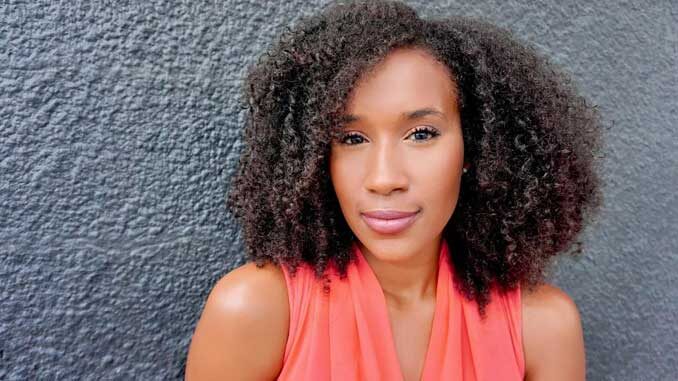
Alexa Green
Data News Weekly Contributor
The COVID-19 Pandemic may have forced working women to get used to a new normal, but for Black women, the initial closure of hair salons meant finding new ways to preserve and protect their hair, including returning to natural hairstyles. For Black women professionals, the shift in working norms has provided a moment to advocate for natural hairstyles in the workplace and to bolster support for policies like the CROWN Act to end hair discrimination for ethnic hairstyles.
“No other group of women is asked, or expected, to alter the natural texture of their hair in order to succeed in our society,” said Attorney Adria N. Kimbrough, who serves as the Pre-Law Program Advisor at Dillard University, and who wears natural hairstyles. “Black hair has always been policed in this country, and that is why the CROWN Act is so important.”
Schools and organizations have developed policies that regulate hairstyles that Kimbrough explained are “simply proxies for race-based discrimination.”
“The provisions of the CROWN Act protect Black women from this kind of discrimination and give Black women the freedom to make personal choices about their hair without fear of losing out on a job or educational opportunities,” Kimbrough said.
Only 7 states have passed the CROWN Act, but many Black women professionals say they are not waiting for society or lawmakers to reaffirm Black women’s hair, they are doing so on their own, even if it may mean some pushback or criticisms along the way.
“I hope that my decision to wear natural hairstyles on TV helps to normalize Black women wearing their natural hair in professional spaces,” said WWL-TV Morning News Anchor Sheba Turk, who has styled natural curls and braids on air.
“Someone decided that straight hair was “professional.” I refuse to accept that, and I hope that the more people see me doing my job professionally with my hair the more people expand their minds when it comes to Black women, their appearance, and their unlimited capabilities with any hairstyle.”
Turk said she persevered through negative comments from viewers when she first switched to natural hairstyles but after a local reporter at another station said her decision encouraged her to also wear braids, she felt the move was having an impact.
Like Turk, fellow New Orleans Anchor Christina Watkins of WDSU Channel 6 News recently made the move to natural hairstyles just this summer.
“Since I’ve been in the industry, I’ve always worn my hair pressed. I decided to finally switch it up in July, and wear knotless braids, to give my hair a break,” Watkins said of her journey. “I was so nervous, but I think it helped make people realize braids are professional,” she said.
Already, Watkins said other women have applauded her switch to a natural hairstyle. “I’m grateful our viewers have been receptive,” Watkins said. “I even get messages from women who said I inspired them to get braids and how they finally feel free. It’s been a great experience.”
Watkins’ decision to switch to a natural, protective hairstyle reflects choices Black women are making across the country about how to manage their hair when based mostly at home. Although COVID-19 did cause salons to be closed for a while, this allowed many to experiment and learn their natural hair and help those around them.
“At the moment I have noticed more people interested in doing their own hair due to COVID,” said Michelle Tollen, an owner of a Natural Hair Salon in Philadelphia, Penn. “They are learning that they can do their own hair and also learning more about their hair.”
Some women noticed that the shift to natural hairstyle also improved the overall health of their hair.
“I started doing twist outs again because it was making my hair healthier and fuller and I have also moved to stop putting heat in my hair completely,” said Miriam C. Purnell, Pharm.D., who is an Associate Professor and the Chair of the Department of Pharmacy, Practice and Administration at the University of Maryland, Eastern Shore.
It helps show how natural hair can be the new norm for younger generations of Black women, Purnell said.
“My daughter is doing the same and is starting to embrace and try new natural hairstyles as well,” Purnell added.
Although natural hair is becoming accepted in more professional environments, in many other states, Black women can still be fired over their hairstyles. When California State Sen. Holly J. Mitchell introduced the CROWN Act SB188 in 2019, she hoped to put into law protections that prohibit race-based hair discrimination, ranging from the denial of employment and educational opportunities because of hair texture or protective hairstyles including braids, locs, twists, or Bantu knots. Black women professionals say they are fighting to not just protect their right to wear their natural hair but to empower their children and future generations to have the freedom to wear their hair as they choose.
“My decision to wear my hair natural is more connected to my identity as a mother than as an attorney,” Kimbrough said. “I wanted to normalize natural hair for my daughter and to help her understand that her hair is beautiful just the way God designed it.”
Recommended For You.



Be the first to comment